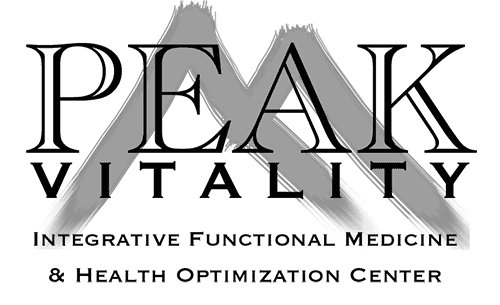Irritable Bowel Syndrome (IBS)
If you find yourself experiencing abdominal pain, cramping, diarrhea, or other digestive problems on a regular basis, you might be dealing with IBS.
What is IBS?
Irritable Bowel Syndrome, also known as IBS, is a gastrointestinal disorder that affects the bowel and digestive tract. Individuals who suffer from IBS often experience an array of unpleasant digestive issues. Though IBS is not deadly, the resulting damage can cause life long health issues and seriously affect an individuals quality of life.
IBS is worrisome for many people who suffer from it, and the toll of unremitting IBS can lead to nutrient malabsorption, lowered immunity, neuromuscular disorders as well as depression and anxiety. Underlying triggers of IBS can create bigger problems such as systemic inflammation and even autoimmunity.
How to Treat Irritable Bowel Syndrome IBS Naturally Webinar Sample Clip
For the full webinar, click the button below.
What Causes IBS?
An exact cause of Irritable Bowel Syndrome is unclear, but there are several factors that can contribute to the development of IBS. These factors include miscommunication between the gut and brain, overly sensitive nerves in the GI tract, microbiome imbalances, immune system disorders, bile dysfunction and issues with the way GI muscles contract and release to move food through the digestive system.
Additionally, stress, anxiety, and an individual’s diet may play a role in triggering the symptoms of IBS.
IBS Symptoms
Diarrhea or constipation
Straining
Excessive gas
Harder or looser stools than usual
Abdominal pain
Bloating
Mucus in fecal matter
Diarrhea or constipation
Straining
Excessive gas
Harder or looser stools than usual
Abdominal pain
Bloating
Mucus in fecal matter
IBS Symptoms in Women
Intensifying PMS
Loss of appetite
Mood swings
Pain during intercourse
Fatigue
Pelvic pain
Intensifying PMS
Loss of appetite
Mood swings
Pain during intercourse
Fatigue
Pelvic pain
IBS Symptoms in Children
Can IBS Cause Constipation?
Can IBS Cause Diarrhea?
IBS Treatment
To do so, it is essential to determine all the current underlying IBS triggers so that the treatment plan is individualized to meet the patient’s unique needs.
An effective nutritional plan is used in combination with the right medical supplementation to enhance gut health.
IBS Diet
We may recommend what’s called the low FODMAP diet, which reduces certain carbohydrates and sugars (like lactose and fructose). Lowering a patient’s gluten intake may also prove useful in managing IBS flare-ups.
It’s also essential to eat enough fiber and drink enough water to keep digestion proceeding as smoothly as possible.
IBS Medication
Reduce diarrhea
Reduce constipation
Reduce constipation
Ensure optimal fiber intake
Ease pain and cramping
Reduce diarrhea
Reduce constipation
Reduce constipation
Ensure optimal fiber intake
Ease pain and cramping
IBS is a difficult, painful disorder to deal with, but fortunately, it can be managed with effective diet and lifestyle practices.
If you know or suspect that you suffer from IBS, call us at 720-504-8068 or schedule an appointment. We’ll take every possible step to recommend the best holistic care protocols for your unique needs.
Fri - Sun: Closed
